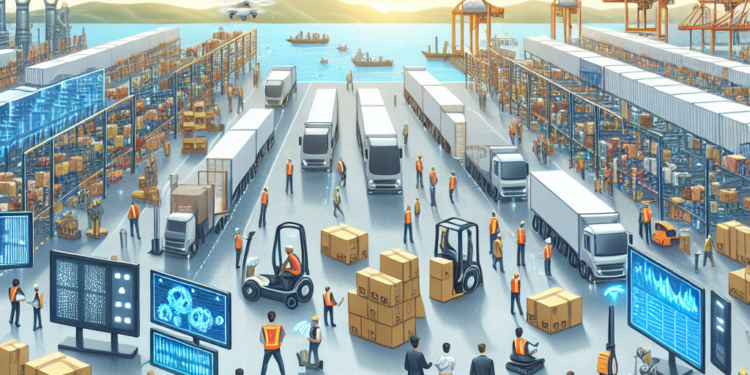In recent years, the increasing complexity of supply chains and the rapid pace of technological advancements have created new challenges for businesses. One of the key challenges facing organizations today is the management of supply chain risks, which have become more unpredictable and difficult to anticipate. However, with the emergence of artificial intelligence (AI) technology, businesses now have the tools to better manage these risks and optimize their supply chain operations.
AI has the potential to revolutionize the way organizations manage supply chain risks by providing real-time data analytics, predictive modeling, and proactive risk mitigation strategies. By leveraging AI algorithms and machine learning techniques, businesses can identify potential risks and opportunities, optimize inventory levels, reduce lead times, and improve supply chain visibility.
One of the key benefits of using AI in supply chain risk management is the ability to enhance decision-making processes. AI algorithms can analyze vast amounts of data from various sources, such as historical sales data, weather forecasts, geopolitical events, and market trends, to identify patterns and trends that are not readily apparent to human analysts. By analyzing this data, AI can generate insights that can help organizations make more informed decisions about their supply chain operations and mitigate potential risks.
For example, AI can help businesses predict and mitigate the impact of natural disasters, political unrest, or supplier disruptions on their supply chain. By analyzing historical data and real-time information, AI algorithms can identify potential risks and provide recommendations for alternative sourcing strategies, inventory adjustments, or transportation routes to minimize the impact of these disruptions.
In addition to improving decision-making processes, AI can also help businesses optimize their supply chain operations by automating routine tasks and streamlining processes. For example, AI-powered algorithms can help optimize inventory levels by predicting demand fluctuations, identifying slow-moving inventory, and recommending replenishment strategies. By automating these tasks, businesses can reduce costs, improve efficiency, and enhance overall supply chain performance.
Moreover, AI can also improve supply chain visibility by providing real-time insights into the status of shipments, inventory levels, and production schedules. By monitoring key performance indicators (KPIs) and alerts, businesses can proactively identify potential risks, such as delays in delivery, quality issues, or capacity constraints, and take corrective actions before they escalate into larger problems.
Another key advantage of using AI in supply chain risk management is the ability to enhance collaboration and communication among supply chain partners. By leveraging AI-powered platforms and tools, businesses can share real-time data, insights, and recommendations with their suppliers, customers, and logistics providers. This increased visibility and transparency can help improve coordination, reduce lead times, and create more resilient supply chains that can quickly adapt to changing market conditions.
Despite the numerous benefits of AI in supply chain risk management, there are also some challenges and concerns that businesses need to address. One of the key challenges is the lack of qualified talent with the expertise to develop and implement AI solutions in supply chain management. Businesses need to invest in training programs, partnerships with technology providers, and collaborative efforts to build a skilled workforce that can effectively leverage AI technology.
Moreover, businesses also need to address data privacy and security concerns when implementing AI solutions in their supply chain operations. Given the sensitive nature of supply chain data, businesses need to implement robust security measures, encryption protocols, and data governance policies to protect their data from unauthorized access, breaches, or cyber-attacks.
In conclusion, AI has the potential to transform supply chain risk management by providing organizations with the tools to better predict, identify, and mitigate risks in their supply chain operations. By leveraging AI algorithms, machine learning techniques, and real-time data analytics, businesses can improve decision-making processes, optimize supply chain operations, enhance visibility, and collaborate more effectively with supply chain partners.
To harness the full potential of AI in supply chain risk management, businesses need to invest in training programs, talent development initiatives, and data security measures to ensure the successful implementation of AI solutions in their supply chain operations. With the right strategy and approach, businesses can leverage AI technology to create more resilient, responsive, and efficient supply chains that can thrive in today’s fast-paced and unpredictable business environment.













